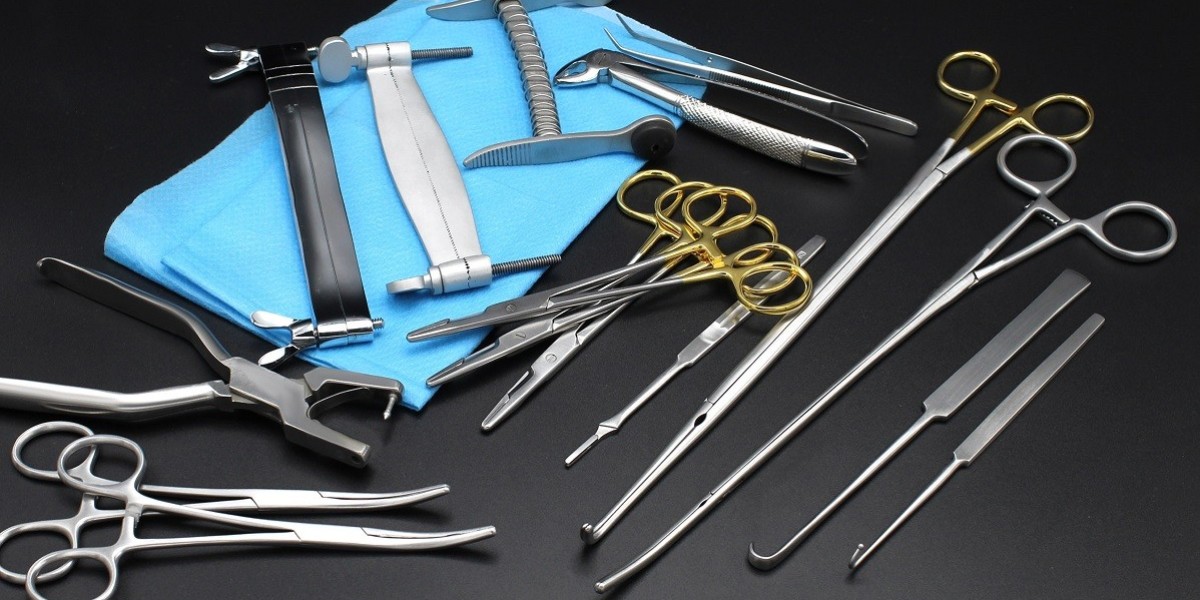Most surgical instruments are crafted from high-quality stainless steel, titanium, or other corrosion-resistant alloys. These materials are chosen because they are durable, resistant to corrosion, and capable of withstanding frequent sterilization. However, even high-quality metals are not entirely rust-proof. Over time and under certain conditions, corrosion can develop.
Common Materials in Surgical Instruments
- Stainless Steel: Known for its strength and corrosion resistance, stainless steel is the most common material used in surgical instruments. Grades like 316 and 420 stainless steel are often used due to their balance of hardness and resistance to rust.
- Titanium: Lightweight and highly resistant to corrosion, titanium is preferred for delicate or high-precision instruments.
- Chromium Coatings: Some instruments have chromium coatings to enhance resistance to rust and maintain a smooth, non-porous surface that is easier to sterilize.
Why Do Surgical Instruments Rust?
Even though surgical instruments are made from corrosion-resistant materials, they are still vulnerable to rust under certain conditions. Factors such as exposure to moisture, improper sterilization, and the use of certain chemicals can contribute to rust formation.
Factors Contributing to Rust on Surgical Instruments
- Exposure to Moisture: Moisture is the primary factor that leads to rust on metal. If instruments are not dried thoroughly after sterilization or cleaning, any lingering moisture can lead to oxidation, the chemical reaction that causes rust.
- Improper Sterilization: High temperatures and certain chemicals used in sterilization processes can weaken the protective layer on stainless steel instruments, making them more prone to rusting.
- Chemical Exposure: Chemicals like saline, bleach, or certain disinfectants can damage the surface of stainless steel instruments, causing pitting corrosion and eventually leading to rust.
- Mechanical Damage: If the surface of an instrument is scratched or damaged, it can compromise the protective oxide layer, allowing rust to form more easily in these weakened areas.
- Improper Storage Conditions: Storing surgical instruments in a humid environment or without proper air circulation can promote moisture buildup and increase the risk of rust.
Signs of Rust on Surgical Instruments
Detecting rust early is essential to prevent its spread and maintain the quality of the instruments. Regular inspection and maintenance can help in identifying early signs of corrosion.
- Discoloration: Rust usually appears as orange or reddish-brown spots on the surface of the instrument. Even small specks should not be ignored, as they can spread over time.
- Pitting: Pitting is when tiny holes or depressions form on the metal surface. These pits can become a breeding ground for bacteria, compromising sterilization and increasing the risk of contamination.
- Rough Texture: A rusty surface may feel rough to the touch, indicating that the metal has corroded.
How to Prevent Rust on Surgical Instruments
Preventing rust on surgical instruments requires consistent and proper maintenance. Here are some essential practices to minimize the risk of rust:
- Proper Cleaning and Drying: After each use, surgical instruments should be thoroughly cleaned to remove any residues and dried completely. Leaving instruments wet or storing them while damp can lead to rust formation.
- Use of Instrument Cleaners: Avoid harsh chemicals like bleach or saline, which can damage the protective surface of instruments. Instead, use cleaning solutions specifically designed for surgical instruments.
- Regular Maintenance: Routine inspections for any signs of corrosion, pitting, or damage can help catch rust early. Promptly address any compromised instruments to prevent further corrosion.
- Controlled Sterilization Methods: Using low-temperature sterilization techniques or choosing sterilization methods compatible with the material of the instruments can help maintain their protective coating and prevent rust.
- Proper Storage: Storing instruments in a dry, well-ventilated environment is critical. Many facilities use instrument trays with drainage to ensure no water collects on the surface after cleaning or sterilization.
Handling Rusted Surgical Instruments
When a surgical instrument is found with signs of rust, it should be taken out of service immediately. Rust cannot always be effectively removed without compromising the instrument's surface integrity, and the instrument may need to be replaced. Using rusted instruments poses a risk to patients and can lead to serious complications, including infections.
- Remove Light Rust with Cleaning Solutions: For minor discoloration, special instrument cleaners or rust removers can sometimes restore the instrument.
- Re-evaluate Sterilization and Cleaning Procedures: If rusting is a frequent issue, reviewing the facility's cleaning and sterilization protocols may reveal practices that are accelerating corrosion.
- Consider Replacement: For severely corroded instruments, replacement is usually the best option to ensure safety and functionality.
Choosing Quality, Rust-Resistant Instruments
One of the best ways to prevent rust is by investing in high-quality instruments from reliable suppliers. Providers like EngrTraders.com offer a range of surgical instruments that meet rigorous standards for corrosion resistance and durability. Choosing from reputable suppliers ensures that healthcare providers receive instruments crafted from high-quality, corrosion-resistant materials.
Conclusion
While surgical instruments are made to be durable and resistant to corrosion, they are not immune to rust. By understanding the factors that contribute to rust formation and implementing best practices in maintenance, healthcare facilities can extend the life of their instruments and ensure patient safety. Regular inspection, careful sterilization, and investing in high-quality products are all crucial steps in preventing rust. For reliable, corrosion-resistant surgical tools, EngrTraders.com offers a selection of top-quality instruments to meet the needs of healthcare providers and ensure long-lasting performance.








